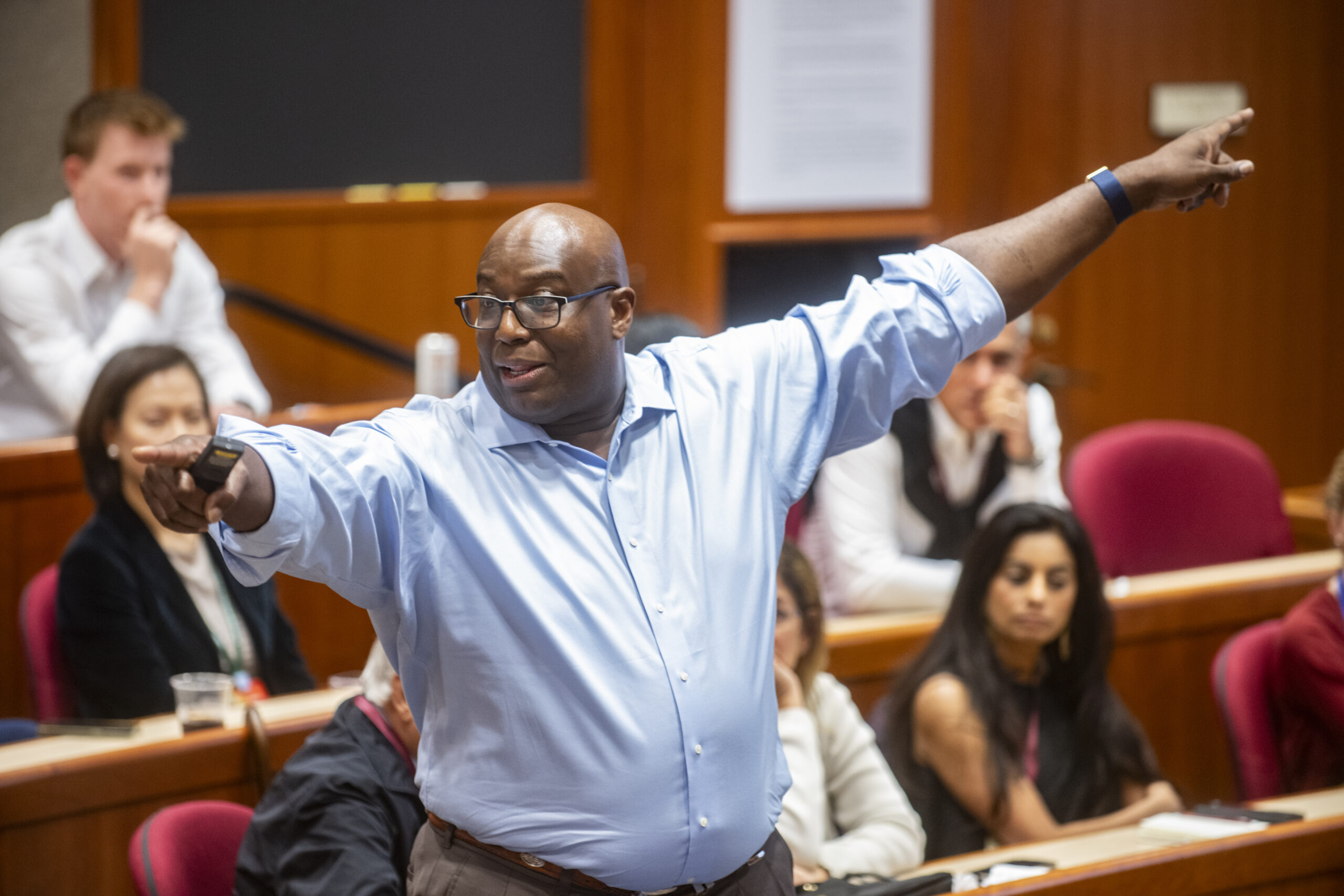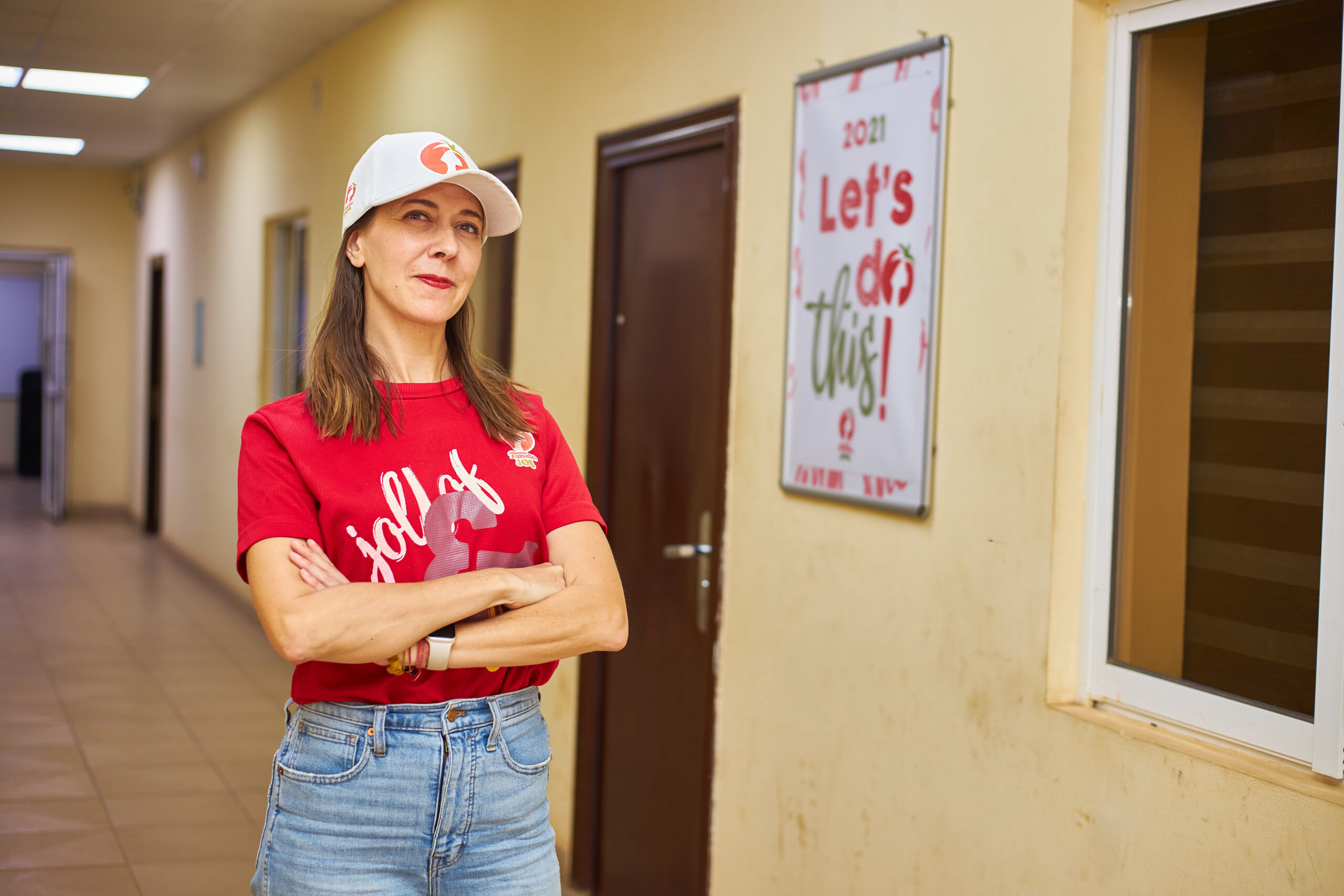

As SEI celebrates 25 years of the Social Enterprise Track of the HBS New Venture Competition, we are connecting with alumni on their entrepreneurial journeys and what NVC meant for them. Mira Mehta (MBA 2014) is Founder and CEO Tomato Jos, and received the Social Enterprise Track Runner-Up prize in 2014 for her venture.
Tell us about Tomato Jos. What was your inspiration for starting this venture?
Tomato Jos is a Nigerian Fast Moving Consumer Goods (FMCG) company that manufactures and sells high quality tomato mix: an everyday consumer-packaged food item. We source tomatoes from a network of smallholder farmers who, by working with us, are able to increase their annual household incomes by 300-400%, shifting from base-of-the-pyramid subsistence growers to skilled, middle-class contract farmers. My inspiration came during the four years I spent at an NGO in Nigeria before attending HBS: I realized that for me, taking a for-profit approach to impact would be more rewarding and feel more sustainable than continuing to work for nonprofits reliant on donor funding.
How has Tomato Jos evolved?
The main impact goals for Tomato Jos (economic empowerment and import substitution) have stayed the same, but the pathway has evolved. For example, initially, I thought we could provide relatively "low touch" support to our partner farmers, but the reality is that if you want to boost farmer yields from 5 to 50 tons per hectare, you need to get deeply involved. Our support package now extends well beyond input loans and education to include irrigation as a service, health insurance, harvesting support, and more. It's taxing on our balance sheet but necessary to drive sustainable profits for small farmers.
How did the New Venture Competition help further your exploration and venture?
Initially, I used the competition to refine the initial idea ("I want to run a tomato paste factory in Nigeria") into a clear business model; practice communicating complex ideas in a simple and compelling way; develop a theory of change around creating impact; and put together a financial forecast. Later, the prize money enabled me to do on-ground research, identify a pilot farm location, hire some teammates, and start operations while putting together a Kickstarter campaign and a SAFE investment round. Speaking to winners from previous years was also incredibly helpful.
Did you take advantage of any other social entrepreneurship resources while at HBS?
I applied for and was awarded two Rock Center for Entrepreneurship stipends. The first paid for me to travel to Nigeria during my second-year spring break. The second gave me a small stipend after graduation; this was crucial support for me, as I was trying to line up funding and figure out how to support myself financially. I was also a resident at the Harvard iLab for 12-18 months after graduating from HBS, which gave me access to great resources and enabled me to work alongside peers who were getting their own companies off the ground.
What changes have you seen in the social entrepreneurship landscape since you were a student at HBS?
My perspective of social entrepreneurship is limited to job creation and poverty reduction businesses in Nigeria and Africa. From what I have seen, the trend that's probably most pervasive is that when interest rates came up, it seemed like people became less excited about making impact investments because their target rates of return didn't look that much better than risk-free investing in government bonds.
What advice would you give to aspiring social entrepreneurs?
1) This might not be relevant outside of Africa, but I have seen a lot of social entrepreneurs get so caught up in the fellowship/prize/award/conference circuit that they forget to focus on the actual operations of the business. Often, you might get a flight and a hotel paid for, but find that the organizers don't actually do anything meaningful to contribute to your success. 2) Even in a social business, never forget that cash is king.